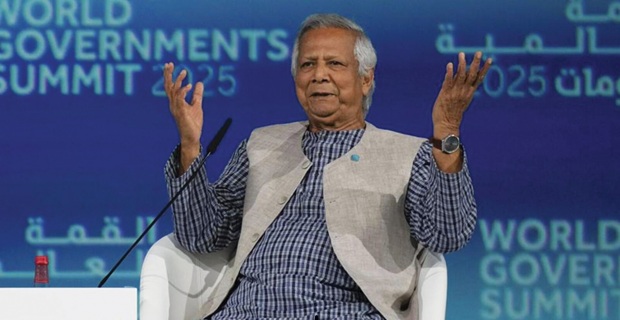“Avoid Rhetoric”
Bangkok: In a significant diplomatic engagement on the sidelines of the BIMSTEC Summit in early April, Prime Minister Narendra Modi raised the issue of minority safety in Bangladesh during his first in-person meeting with Muhammad Yunus, Chief Advisor of the interim government in Dhaka. The meeting marked their first interaction since the ousting of the Awami League-led government under former Prime Minister Sheikh Hasina and the establishment of the caretaker administration in August 2024.
Prime Minister Modi conveyed India’s deep concern regarding the security of minorities, particularly Hindus, in Bangladesh. He stressed the importance of ensuring their protection and called for thorough investigations into reported incidents of violence and discrimination.
“Prime Minister underlined India’s concerns related to the safety and security of minorities in Bangladesh, including Hindus, and expressed his expectation that the government of Bangladesh would ensure their protection by fully investigating all cases of atrocities,” Foreign Secretary Vikram Misri said during a press briefing following the summit.
PM Modi emphasized the importance of preserving the long-standing bilateral relationship between the two nations and reiterated that all issues of mutual interest should continue to be addressed through constructive dialogue. He cautioned against the use of rhetoric that could vitiate the atmosphere and expressed hope that bilateral ties would be managed with pragmatism and mutual respect.
The Indian Prime Minister reaffirmed India’s commitment to a democratic, stable, peaceful, and inclusive Bangladesh, noting that the India-Bangladesh relationship is rooted in a people-centric approach that has yielded tangible benefits over time. “In this spirit,” Misri added, “the Prime Minister expressed India’s willingness to build a forward-looking and constructive relationship with Bangladesh.”
Border security also featured prominently in the discussions. PM Modi highlighted the need for stricter enforcement of border laws and enhanced vigilance, particularly during nighttime, to prevent illegal crossings and maintain stability. He pointed out that existing bilateral mechanisms could be activated to monitor and advance cooperation in this regard.
The meeting also touched on politically sensitive matters such as the request for Sheikh Hasina’s extradition and the conduct of democratic elections in Bangladesh. PM Modi stressed the importance of holding regular and inclusive elections, which are essential for ensuring long-term stability and democratic legitimacy.
Bangladesh formally assumed the Chairmanship of the Bay of Bengal Initiative for Multi-Sectoral Technical and Economic Cooperation (BIMSTEC), a seven-member regional grouping formed in 1997 that now includes Bangladesh, India, Sri Lanka, Thailand, Myanmar, Bhutan, and Nepal. PM Modi congratulated Bangladesh on taking over the leadership and expressed hope that the forum would advance regional cooperation under Dhaka’s stewardship.
“The two leaders shared views on a range of regional issues and agreed to intensify consultations and cooperation within the BIMSTEC framework,” said Foreign Secretary Misri.
In a symbolic gesture during the meeting, Yunus presented PM Modi with a photograph from January 3, 2015, showing Modi awarding him a gold medal at the 102nd Indian Science Congress in Mumbai. “All issues of mutual interest were discussed. The meeting was very constructive, productive, and fruitful,” Yunus’s Press Secretary Shafiqul Alam told Bangladeshi media.











Comments.